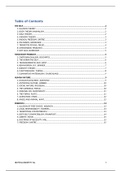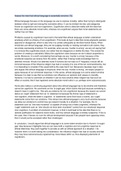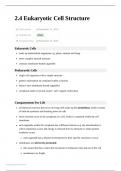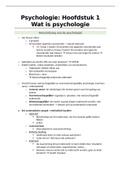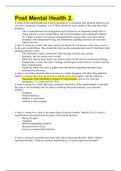THE SELF...........................................................................................................................................2
1. ILLUSION THEORY..........................................................................................................................2
2. BODY THEORY/ANIMALISM...........................................................................................................2
3. SOUL THEORY................................................................................................................................2
4. MEMORY THEORY.........................................................................................................................3
5. RADICAL FREEDOM, SARTRE..........................................................................................................3
6. ON DASEIN, HEIDEGGER................................................................................................................3
7. TRIPARTITE PSYCHE, FREUD...........................................................................................................4
8. UPANISHADIC HINDUISM..............................................................................................................4
9. NOT-SELF, BUDDHISM...................................................................................................................5
MIND-BODY PROBLEM.....................................................................................................................5
1. CARTESIAN DUALISM, DESCARTES.................................................................................................5
2. THE NARRATIVE SELF.....................................................................................................................6
3. TRANSCENDENTAL EGO, KANT......................................................................................................6
4. BEHAVIORISM, B.F. SKINNER.........................................................................................................7
5. IDENTITY THEORY..........................................................................................................................7
6. FUNCTIONALISM, TURING.............................................................................................................8
7. ELIMINATIVE MATERIALISM, CHURCHLAND..................................................................................9
HUMAN NATURE..............................................................................................................................9
1. HUMAN FULFILMENT, ARISTOTLE.................................................................................................9
2. ANTISOCIAL NATURE, HOBBES....................................................................................................10
3. SOCIAL NATURE, ROUSSEAU........................................................................................................10
4. THE SUPEREGO, FREUD...............................................................................................................10
5. ORIGINAL SIN, CHRISTIANITY.......................................................................................................11
6. THE FORMS, PLATO.....................................................................................................................11
7. ALIENATION, MARX.....................................................................................................................12
8. ANGEL AND ANIMAL, KANT.........................................................................................................12
FREEDOM.......................................................................................................................................13
1. ILLUSION OF FREE CHOICE, HOLBACH..........................................................................................13
2. LEGAL RESPONSIBILITY, HOSPERS................................................................................................13
3. TRADITIONAL COMPATIBILISM....................................................................................................14
4. DEEP SELF-COMPATIBILISM, FRANKFURT....................................................................................14
5. LIBERTY, HUME............................................................................................................................15
6. DOCTRINE OF NECESSITY, MILL....................................................................................................15
7. FREEDOM, SARTRE......................................................................................................................15
IB PHILOSOPHY SL 1
,THE SELF
Who am I? Which iteration of myself is the real me?
THE CONCEPT OF SAME
Numerical: one and the same thing
Qualitative: two or more identical objects but not the one and the same (2+ versions of the
same type)
THE ESSENTIAL SELF
A set of characteristics that pertain to a person which endure over time
1. ILLUSION THEORY
The theory that we do not have a set of characteristics that endure over time
We undergo continuous qualitative change
Bodies are constantly gaining/losing mass
There is no one permanent, unchanging self if we examine ourselves empirically
“it is not possible to step twice in the same river” - Heraclitus
Since there are no permanent conditions of any kind, we should live instinctually and
have no deliberate actions
Buddhists believe that a theory of a continually persisting self is ignorant and foolish
CRITIQUE
We still continually plan for our future
What becomes of our relationships with others?
How can we still hold people responsible for their past crimes?
2. BODY THEORY/ANIMALISM
The theory that we are identical to our biological bodies
We are our bodies
If we have the same DNA, we are the same person
We persist through time so long as our bodies retain functional organization
Humans are, in principle, same as other animals
Even if aspects of our bodies change over time, we are still numerically dealing with
the same physical body
CRITIQUE
A person needs to be able to think/reason (ex. coma)
What about post-mortem existence? (religion)
Cases where bodies are switched?
Amnesia? We might also need psychic continuity
3. SOUL THEORY
The theory that our personal identity is tied to an enduring entity, namely the soul
Same soul → same person
Our personal identity is not affected by the death of our physical body as our soul
endures
CRITIQUE
How can you check if someone is the same person? We use physical appearances
to affirm if someone is who they say they are. With soul theory, you couldn’t be sure
Leads to heavy skepticism
IB PHILOSOPHY SL 2
, 4. MEMORY THEORY
The theory that memories provide us with a form of psychological continuity
You are identical to the person in the past so long as you may recall some events
experienced by that person
Logically possible to survive one’s own death; you may remember your life on Earth
in the afterlife
You may verify the identity of another via shared memories
CRITIQUE
What becomes of forgotten memories?
What about lapses in memories?
What of false memories?
The concept of direct memories vs indirect memories
5. RADICAL FREEDOM, SARTRE
The theory that our authentic self always lies in the future
KEY TERMS:
Being-in-itself: a being with no free will or consciousness, one who cannot choose their
purpose, one who is made for a specific purpose
Being-for-itself: a being which can choose how its existence shall be, one who is able to
use consciousness/freedom to create meaning
Facticity: the state of having facts that you cannot change (i.e. your birth)
PREMISES
We are born free; we experience negative ecstasy once we realize it
Being precedes essence
We are social beings
There is no god
THEORY
We must exercise our freedom
When a supposed facticity is used as an excuse to not do something freely, then we
are acting in mauvaise foi, or bad faith – we always have options
By exercising our freedom and remaining authentic to ourselves, we may transcend
and work towards a final state of authenticity
This authentic state can never truly be reached, but we grow closer to our true selves
6. ON DASEIN, HEIDEGGER
The theory that we have a collective social identity
KEY TERMS:
Dasman: they/they-self, an anonymous no-one
Dasein: oneself/authentic self
THEORY:
Our dasein is always out of our reach but within ourselves
“Everyone is the other, and no one is himself”
We must take hold of ourselves as individuals and attempt to find our authentic
selves/dasein within us by doing the following:
o Admitting to ourselves that we are not ourselves
o Grow aware of moments when we are putting on a mask, and which mask we
are wearing
IB PHILOSOPHY SL 3

